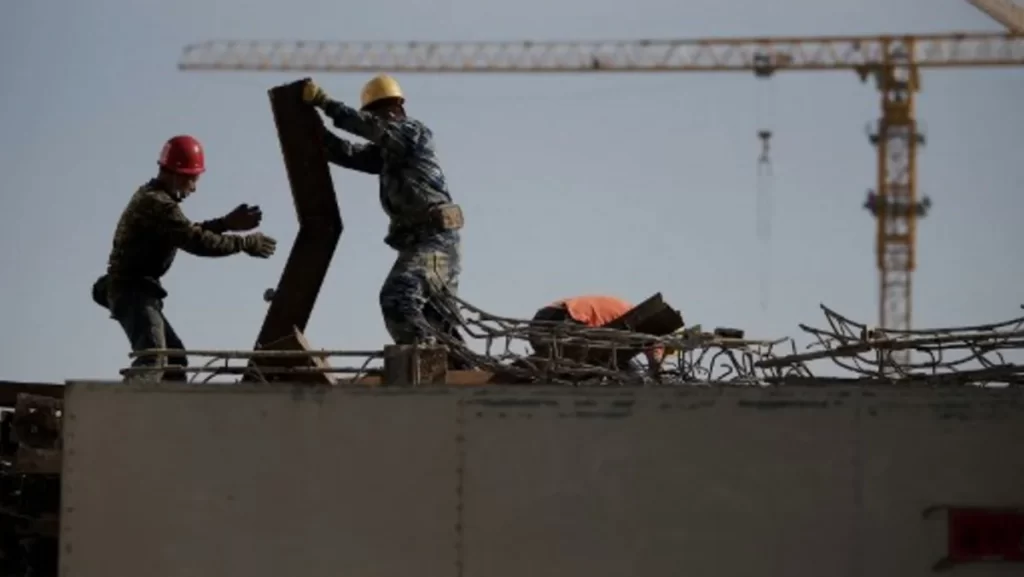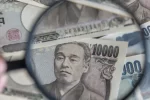The debt problems of Chinese developers and developers are getting weaker as sales and yuan decline

By Clare Jim HONG KONG (Reuters) – Chinese developer Zhongliang Holdings is scrambling to secure bondholder approval to extend the repayment on notes worth $729 million ahead of a key deadline next week, joining peers desperate to avoid offshore debt defaults.

The debt problems of Chinese: eers in desperate attempts to prevent defaults.As a result, the Shanghai-based company is unable to sell enough homes amid China’s property slump. It also has difficulty obtaining refinancing for investors due to full redemption of their bonds in May or July.Zhongliang could default on its bonds, causing investor anxiety about China’s property market. Beijing is trying to boost confidence in the overall economy.
Zhongliang will have to pay $ 1.25 million more for its bond coupons if Zhongliang approves the one-year contract extension. This could be due to a weaker currency. Additional repayment costs can increase for other issues with cash constraints with higher debt burden.
The situation “is definitely more serious this time,” said Albert Yao Zhongliang, chief financial officer. He compared the current situation with the sharp decline of the yuan in 2018.
Unlike the fall of 2018, developers are no longer able to refinance overseas. This is due to a series of setbacks on the part of publishers in troubled sectors that have made it impossible for them to raise new debt. This means that refunds must be transferred from the accounts.
In late April, Jungliang contacted the holders of the May and July 2022 banknotes, asking them to postpone their maturities so that they could exchange their bonds for next year.
The deadline for bondholders’ satisfaction is Monday night, which has been extended to May 10. Default may occur if you fail to get 90% approval.
“The situation is definitely worse this time around,” said Zhongliang’s finance director Albert Yao, comparing the current situation to the latest sharp decline in the yuan in 2018.
Unlike the 2018 tumble, developers are now unable to refinance offshore after a series of defaults by other issuers in the troubled sector made new debt raising impossible. That means repayments would need to be transferred from onshore yuan accounts.
Zhongliang asked holders of its May and July 2022 notes in late April to delay the maturities by exchanging their bonds for new issuance due next year.
Bondholders have until late Monday to give their consent, a deadline extended from May 10. Failure to secure 90% approval would likely result in a default.
Jungliang’s weak cash flow has created a cloud of darkness. This is because the Chinese city of Shanghai is currently enforcing strict COVID-19 quarantines. Zhongliang has seen a 55 percent drop in sales in the past four months.
Yao added that sales improvements will take longer because it is a long-term struggle. Yao also said that 40 percent of coastal cities have been affected by quarantine.
The world’s second-largest economy is experiencing sluggish housing sales and a weakening currency – putting pressure on real estate developers who are currently struggling to pay off debts and raise new capital.
Offshore debt maturities have become more costly for developers by about $ 20 billion due to a more than 6% yuan decline. Some of these developers are already lagging behind in their payments.
Sunac China, the third developer to fail to pay off dollar bonds in recent months, has joined the ranks of other failed developers. Investors’ concerns about the sector, which contributes 25 percent to the economy, are renewed by China’s Sunac.
FRESH CHALLENGES
The debt problems of Chinese: Casting a cloud over Zhongliang’s tight cashflow is a grim outlook for the property market, which is now depressed by strict COVID-19 lockdowns in many Chinese cities. Zhongliang’s sales have plunged 55% in the first four months of 2022.
“We expect it will take a longer period of time for sales to recover – it’s a long-term battle,” Yau said, adding the developer’s business in 40% of the coastal cities were disrupted because of the lockdowns.
A sharp slowdown in home sales in the world’s second-largest economy and a weaker yuan are set to pile pressure on property developers already struggling to repay debt and raise fresh capital.
An over 6% drop in the yuan has made offshore debt maturities worth around $20 billion for rest of the year more expensive for developers, some of whom have already defaulted on their repayment obligations this year.
Sunac China on Wednesday became the latest to join other developers that have failed to make dollar bond payments in the recent months, renewing investor concerns about the sector that accounts for a quarter of the country’s economy.
The debt problems of Chinese
The developers, who were hoping for the market to bottom out in the second quarter, are revising down investor expectations for full-year sales after posting a 50% plunge in the first four months, with no demand rebound seen in the near future.
A developer based in the Guangdong province said city curbs not only hurt short-term sales but also affect longer-term purchasing power with potential buyers feeling insecure about their jobs.
The mounting challenges for the developers come against the backdrop of repeated assurances by the Chinese policymakers and regulators to ensure healthy sector development by avoiding defaults and efforts including banks extending loans.
“It is indeed a double whammy situation that they will face, not only about this weaker revenue but on the other hand it’s this weaker currency plus higher yield,” said Gary Ng, Asia Pacific senior economist of Natixis.
“I think definitely there will be more concerns in terms of repayment ability as we have seen the default ratio, which is dominated by real estate developers in the offshore market, has increased.”
An executive of another listed developer, who has delayed its dollar bond payments to next year, said a weaker yuan has a big long-term impact on its offshore debt restructuring under discussions because it will become much more expensive.
The executive declined to be named because the restructuring discussion is private.






